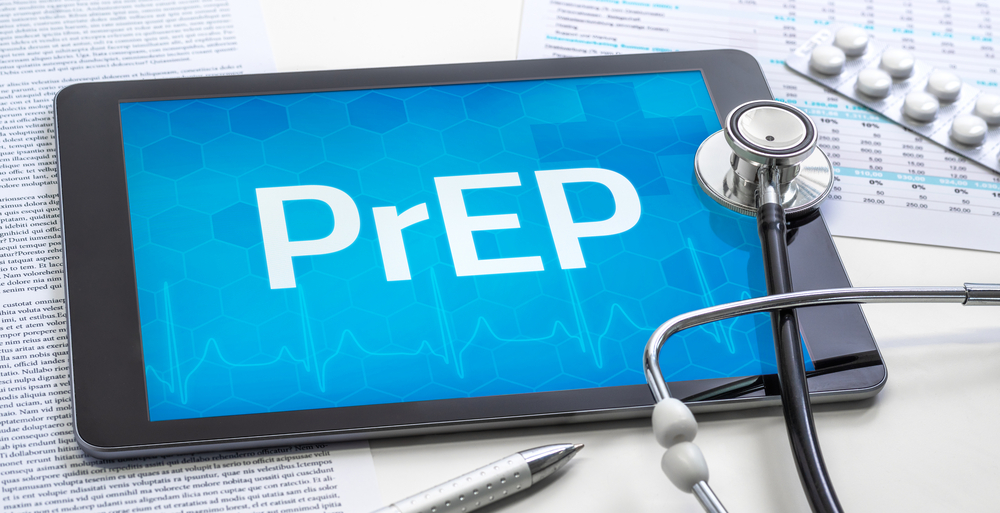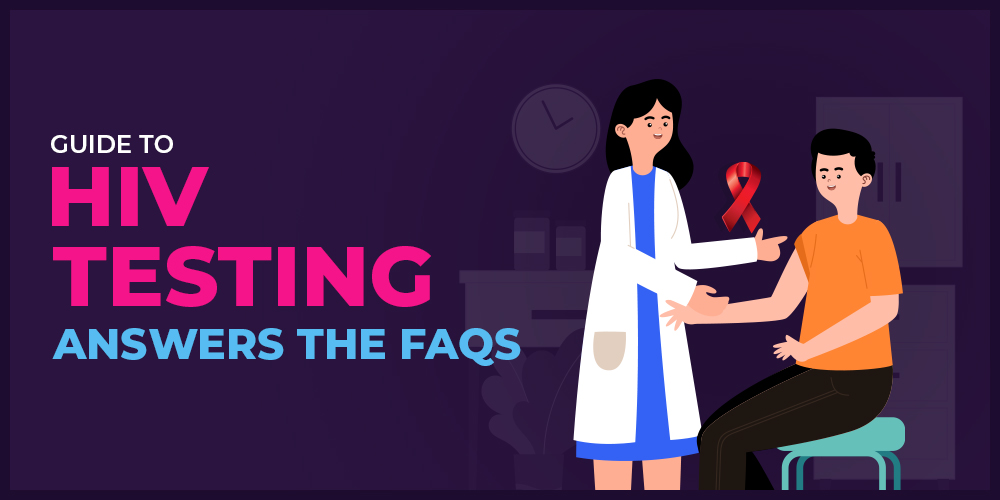Do you know your HIV status?
The rates of HIV transmission have declined by 9% since 2015. However, there are still thousands of people in the United States alone who have HIV and do not know it. This is often because people who are not experiencing any HIV symptoms do not go for testing.
Unfortunately, the symptoms of HIV can be quite subtle – and some people don’t experience any at all. The most common symptoms after exposure to HIV are:
- Fever
- Fatigue
- Sore throat
- Rash
- Muscle aches
- Chills and night sweats
These early signs of HIV are quite similar to the flu or a bad cold – so they are often missed as indications of HIV transmission.
But the earlier that HIV contraction is detected, the sooner it can be treated. Medication treatments such as PEP (post-exposure prophylaxis) can be administered within 72 hours of exposure to prevent HIV transmission. A person’s viral load (the quantity of a virus in a volume of fluid) can also be controlled through medication to keep it undetectable and untransmittable.
Determining your HIV status is crucial for preventing HIV for yourself and others.
Now, you may have some questions about HIV testing. Going to a doctor for any reason can be quite frightening – but knowing what to expect can help to alleviate some of your fears.
Let’s dive into some of the most commonly asked questions about HIV testing.
1. Who Should Get Tested?

The CDC recommends that anyone between the ages of 13 to 64 should be tested for HIV at least once by a doctor to know their status. Anyone who is at risk of HIV transmission should get tested regularly, especially after any suspected exposure.
HIV is an immunodeficiency virus that can only be transmitted through bodily fluids. Most commonly, HIV is contracted through semen, blood, vaginal fluid, or breastmilk. Transmission typically occurs through condomless sexual intercourse, shared intravenous needles, or through breastfeeding.
If you have had condomless sex with a partner who is living with HIV or whose status is unknown, it is important to get tested right away. Additionally, if you are sharing injecting equipment for substances, you should be tested for HIV.
2. How Often Should I Get Tested?
The frequency of your HIV testing depends on several factors. Although HIV can be transmitted in many ways, it is most commonly contracted through condomless receptive anal sex without PrEP. Therefore, sexually active gay or bisexual men should be tested regularly. The CDC recommends that they be tested every 3 to 6 months.
Yearly testing is recommended for people who have condomless vaginal, oral, or anal sex with a new partner or who use intravenous drugs. People who participate in sex work should also be tested frequently. Additionally, it is recommended that you get tested for HIV if you are sexually assaulted.
3. How Long do I have to Wait for Results?

HIV can be detected in the body within just two weeks of exposure. HIV spreads through the body by creating antigens, which overtake immune cells to reproduce. HIV tests check for antibodies (the body’s natural response to infections) or these antigens.
There are several different types of HIV tests.
Antibody/antigen tests are the most common type of test, and they can detect HIV as soon as 18 days of exposure. This will require a blood sample and results can come back in just a few days.
Some doctors will offer rapid HIV tests which check for antibodies. Either blood or saliva is collected and you can get results in as little as 20 minutes.
4. How Accurate are Tests?
HIV antibody and antigen tests are extremely precise. The newest versions of these tests have a 99% accuracy rating within the first six weeks of contraction.
However, there is always a risk of a false negative or false positive with any type of test. This usually occurs if a person is tested too early after exposure to HIV. If you are unsure of your results or think you may have been tested too early, it is recommended to get tested again after two to three weeks for a more accurate result.
5. What Happens if I Test Positive?
Typically, if an HIV test comes back reactive, the doctor will recommend a follow-up test to ensure its accuracy. If the second test comes back positive, then your doctor will talk to you about HIV treatment drugs.
The goal here is to prevent the progression of HIV to AIDS by decreasing the viral load. Antiretroviral therapy (ART) is typically given to a person living with HIV to suppress the virus. People can live very healthy lives if they take HIV treatment drugs as prescribed. This medication supports your immune system and also significantly lowers the viral load of HIV, making HIV undetectable and untransmittable, or U=U.
6. What Happens if I Test Negative?
If you receive a negative result, it means that no antibodies or antigens were detected in your body. This is great news – but there are some steps you should take to prevent contracting HIV in the future.
There are many ways to protect yourself (and others) from contracting HIV. The first step is to avoid condomless sex or sharing intravenous needles.
You and your sexual partners should be tested regularly and share your HIV status if you intend to have condomless sex. Using a condom during intercourse (including oral) is also highly recommended.
Taking PrEP (pre-exposure prophylaxis) is the best form of HIV prevention. This is a prescription medication regimen that will prevent HIV transmission if exposure occurs. It offers the greatest protection when it is taken as directed for a minimum of five to seven days. When taken as directed, it can reduce your risk of HIV transmission by up to 99%.
How do I get PrEP?

In order to get PrEP, you need to talk to a doctor to see if it is the right medication option for you. You can connect with our team at PrEP Daily to learn more about taking PrEP, how to pay for PrEP, and other HIV prevention methods.
We have a team of navigators who will connect with you one-on-one and get you in touch with a local doctor. We are here to answer any questions or concerns you may have about taking PrEP! Reach out to us today to learn more.

